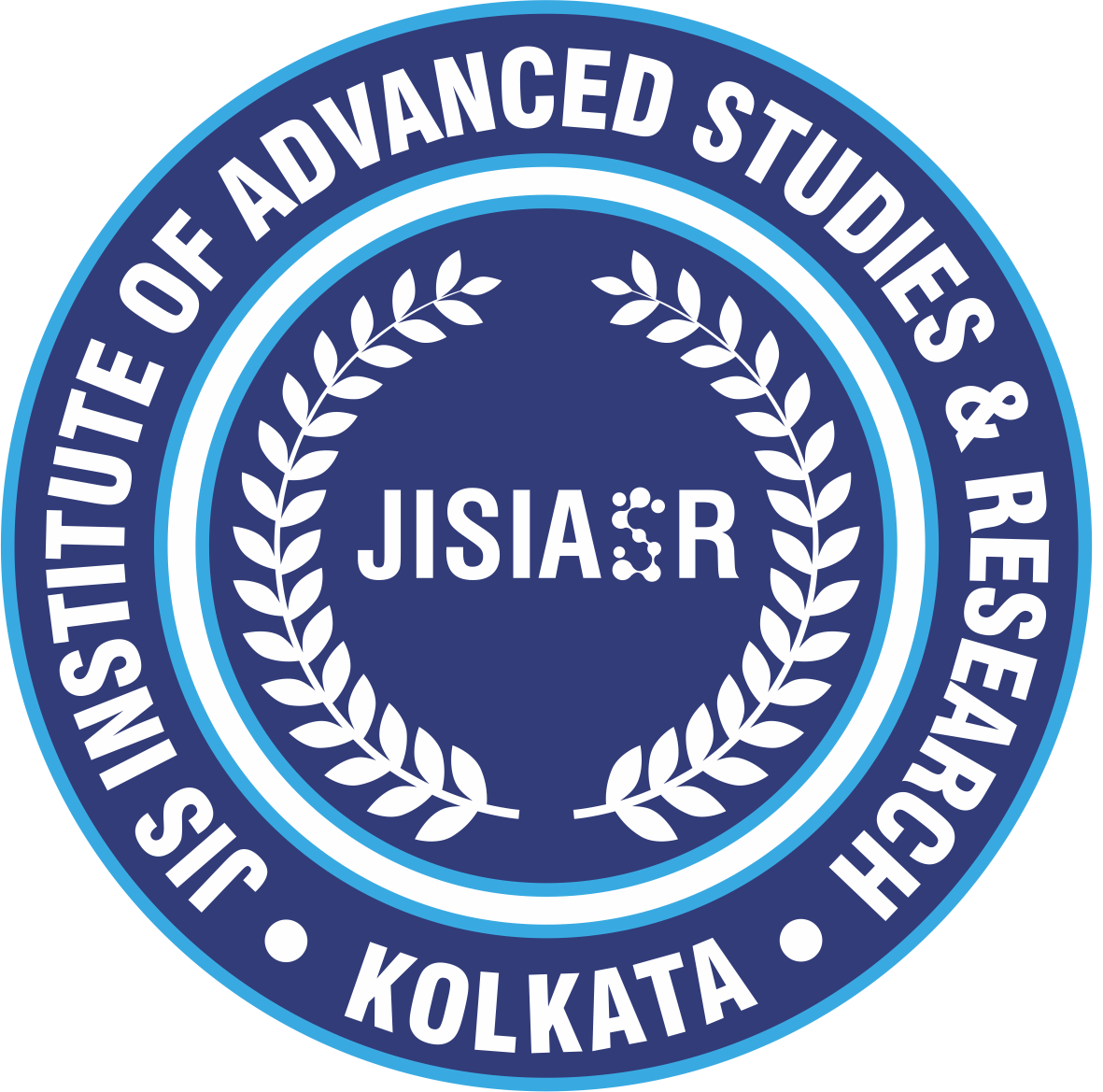Associate Professor
Systems Biology Informatics Lab
Centre for Health Science & Technology
Email: sandipp@jisiasr.org, websandip@gmail.com
Google Scholar: https://scholar.google.com/citations?user=4_p529wAAAAJ&hl=en
ORCiD: http://www.orcid.org/0000-0001-7406-3598
VIDWAN: https://vidwan.inflibnet.ac.in/profile/212230
Post Doctoral research: Department of Microbiology, University of Washington, Seattle, USA
Ph.D.: IICB, Jadavpur University, Kolkata, India
M.Sc.: Biophysics, Kalyani University, India
Professional Engagements:
2021 – Present: Associate Professor, JIS Institute of Advanced Studies and Research Kolkata
2016 – 2021: Ramanujan Fellow, CSIR-IICB, Kolkata, India
2016 – 2021: Assistant Professor, AcSIR (Academy of Scientific and Innovative Research)
2011 – 2016: Senior Fellow, Dept. of Microbiology, University of Washington, Seattle, USA
Research Topics
Human microbiome in health and disease; Microbial metabolic symbiosis, NGS data mining and methodology development; Multi-omics data integration, Comparative microbial genomics
Research Focus:
1. Human microbiome in health and disease
The human body is inhabited by abundant microorganisms, including bacteria, archaea, viruses, fungi, protozoa etc. collectively known as human microbiota. The advent of a new sequencing era like high-throughput DNA sequencing and metagenomic studies have explored the highly diverse and dynamic nature of the microbial communities and their crucial role in human health and in disease.
We have several collaborations with experimental and clinical laboratories in order to analyse the human microbiome data at different taxonomic levels as well as functional potentials between diverse microbial communities for understanding human health and diseases that are associated with the microbiota.
2. Multi-omics data mining and methods development
Recent advances in multi-omics (metagenomics, metatranscriptomics, metaproteomics and metabolomics) technologies created new avenues to explore the dynamic relationships between molecular events and clinical outcomes using quantitative methods. However, the extraordinary range and complexity of these omics data have faced critical computational bottlenecks requiring emerging concepts and methods. We work in collaboration with our data science department in order to develop new computational framework to integrate big data mining algorithms with high-performance computing strategies for revealing the complex relationships between multi-omics patterns and phenotypic outcomes. This will enhance the integration of different data types and the interpretation of results from multiple aspects.
3. Comparative genomics and genome adaptation
The genome divergence is a dynamic evolutionary process of ecological and genetic differentiation. A considerable portion of the genetic diversity is likely to be considered as regulators of adaptive features associated with particular habitat. One powerful approach to unraveling the molecular mechanisms of adaptation is the comparative genomics study with large number of complete genome sequences. In this regard, the pan-genome approach, has been found to be valuable in the comparative analysis for a set of genomes.
We employ the comparative pan-genomic study coupled with evolutionary analyses as a framework to investigate the genome diversification associated with various life-style/pathogenicity. This framework is very useful in deciphering the contingent contributions of evolutionary processes along with the selective pressures that can potentially shape the genomic and metabolic diversification.
Book Chapter
1. Swarnakar S., Roy A., Ghosh S., Majumder R., Paul S. (2017) Gastric Pathology and Metalloproteinases, Pathophysiological Aspects of Proteases, 489-513.
2. Kumar K, Bhowmik D, Mandloi S, Gautam A, Lahiri A, Biswas N, Paul S, Chakrabarti S. (2023) Integrating Multi-Omics Data to Construct Reliable Interconnected Models of Signaling, Gene Regulatory, and Metabolic Pathways. Computational Modeling of Signaling Networks, Methods Mol Biol. 139–151.
Selected Journal Publications
Selected Journal Articles from JISIASR:
9. Roy Chowdhury R., Dhar J., Robinson S. M., Lahiri A., Basak K., Paul S., Banerjee R. (2023) MACI: A machine learning-based approach to identify drug classes of antibiotic resistance genes from metagenomic data. Computers in Biology and Medicine. 167, 107629, ISSN 0010-4825, IF:7.7
8. Gautam A, Bhowmik D, Basu S, Zeng W, Lahiri A, Huson DH, Paul S.(2023) MicrobiomeMetabolome Integration Platform (MMIP): a web-based platform for microbiome andmetabolome data integration and feature identification. Brief Bioinform. 24(6):bbad325. PMID: 37771003. IF:9.5
7. Sarkar A, Mitra P, Lahiri A, Das T, Sarkar J, Paul S, Chakrabarti P. (2023) Butyratelimits inflammatory macrophage niche in NASH. Cell Death Dis. 14(5):332. PMID: 37202387; PMCID:PMC10195803. IF:9.0
6. Chowdhury S, Kar A, Bhowmik D, Gautam A, Basak D, Sarkar I, Ghosh P, SarkarD, Deka A, Chakraborty P, Mukhopadhyay A, Mehrotra S, Basak S, Paul S,Chatterjee S. (2022) Intracellular Acetyl CoA Potentiates the Therapeutic Efficacy ofAntitumor CD8+ T Cells. Cancer Res. 82(14):2640-2655. PMID: 35648389; PMCID: PMC7613107. IF:11.2
5. Mall DP, Basu S, Ghosh K, Kumari N, Lahiri A, Paul S, Biswas D. (2022) Human FKBP5Negatively Regulates Transcription through Inhibition of P-TEFb ComplexFormation. Mol Cell Biol. 42(1):e0034421.PMID: 34780285; PMCID: PMC8773085. IF:5.5
4. Das D, Paul A, Lahiri A, Adak M, Maity SK, Sarkar A, Paul S, Chakrabarti P. (2021) Proteasome dysfunction under compromised redox metabolism dictates liver injuryin NASH through ASK1/PPARγ binodal complementary modules. Redox Biol. 45:102043. PMID:34144391; PMCID: PMC8220246. IF: 11.4
3. Biswas N, Mallick P, Maity SK, Bhowmik D, Mitra AG, Saha S, Roy A,Chakrabarti P, Paul S, Chakrabarti S. (2021) Genomic Surveillance and PhylodynamicAnalyses Reveal the Emergence of Novel Mutations and Co-mutation Patterns WithinSARS-CoV-2 Variants Prevalent in India. Front Microbiol. 12:703933.PMID: 34394051; PMCID: PMC8358439. IF:5.2
2. Banerjee R, Chaudhari NM, Lahiri A, Gautam A, Bhowmik D, Dutta C,Chattopadhyay S, Huson DH, Paul S. (2021) Interplay of Various Evolutionary Modes inGenome Diversification and Adaptive Evolution of the FamilySulfolobaceae. Front Microbiol. 12:639995. PMID: 34248865; PMCID: PMC8267890. IF:5.2
1. Lee C, Verma R, Byun S, Jeun EJ, Kim GC, Lee S, Kang HJ, Kim CJ, Sharma G,Lahiri A, Paul S, Kim KS, Hwang DS, Iwakura Y, Speciale I, Molinaro A, De CastroC, Rudra D, Im SH. (2021) Structural specificities of cell surface β-glucanpolysaccharides determine commensal yeast mediated immuno-modulatory activities. Nat Commun. 12(1):3611. PMID:34127673; PMCID: PMC8203763. IF: 16.6
Previous Selected Journal Articles:
1. Chaudhari NM, Gautam A, Gupta VK, Dutta C, Paul S.(2018) PanGFR-HM: a dynamic web resource for pan-genomic and functional profiling of human microbiome with comparative features. Front. Microbiol. 9:30349509.PMID: 30349509 PMCID: PMC6187978. IF:5.2
2. Gupta VK, Paul S, Dutta C. (2017) Geography, ethnicity or subsistence-specific variations in human microbiome composition and diversity. Front. Microbiol.8:1162. PMID: 28690602 PMCID: PMC5481955. IF:5.2
3. Kisiela DI, Radey M, Paul S, Porter S, Polukhina K, Tchesnokova V, Shevchenko S, Chan D, Aziz M, Johnson TJ, Price LB, Johnson JR, Sokurenko EV. (2017) Inactivation of transcriptional regulators during within-household evolution of Escherichia coli. J Bacteriol.199(13):e00036-17.PMID: 28439032 PMCID: PMC5472819. IF: 3.2
4. Paul S, Sokurenko EV, Chattopadhyay S. (2016) Corrected Genome Annotations Reveal Gene Loss and Antibiotic Resistance as Drivers in the Fitness Evolution of Salmonellaenteric Serovar Typhimurium. J Bacteriol. 198:3152-3161.PMID: 27621280 PMCID: PMC5105896. IF:3.2
5. Paul S, Minnick MF, Chattopadhyay S. (2016) Mutation-Driven Divergence and Convergence Indicate Adaptive Evolution of the Intracellular Human-Restricted Pathogen, Bartonella bacilliformis. PLoSNegl Trop Dis, 10(5):e0004712.PMID: 27167125 PMCID: PMC4864206. IF:3.8
6. Paul S, Bhardwaj A, Bag SK, Sokurenko EV, Chattopadhyay S. (2015) PanCoreGen – profiling, detecting, annotating protein-coding genes in microbial genomes. Genomics, 106:367-372, 26456591. IF: 4.4
7. Chattopadhyay S, Paul S, Dykhuizen DE., Sokurenko EV. (2013) Tracking recent adaptive evolution in microbial species using TimeZone. 2013, Nature Protocols, 8:652-665.PMID: 23471110. IF:14.8
8. Kisiela DI, Chattopadhyay S, Tchesnokova V, Paul S, Weissman SJ, Medenica I, Clegg S, Sokuernko EV. (2013) Evolutionary analysis points to divergent physiological roles of type 1 fimbriae in Salmonella and E. Coli. mBio, 4(2):e00625-12.PMID: 23462115 PMCID: PMC3604780. IF:6.5
9. Paul S, Million-Weaver S, Chattopadhyay S, Sokurenko EV, Merrikh H. (2013) Accelerated gene evolution through replication–transcription conflicts. Nature, 495:512-515.PMID: 23538833 PMCID: PMC3807732. IF:64.8
10. Chattopadhyay S, Taub F, Paul S, Weissman SJ, Sokurenko EV. (2013) Microbial variome database: point mutations, adaptive or not, in bacterial core genomes. Mol Biol Evol, 30:1465-1470.PMID: 23493258 PMCID: PMC3649677. IF:10.7
11. Paul S,Linardopoulou E, Billig M, Tchesnokova V, Price L, Johnson J, Chattopadhyay S, Sokurenko EV. (2013) Role of homologous recombination in adaptive diversification of extra-intestinal Escherichia coli. J Bacteriol, 195:231-242. PMID: 23123908 PMCID: PMC3553836. IF:3.2
12. Chattopadhyay S, Paul S, Kisiela DI, Linardopoulou E, Sokurenko EV. (2012) Convergent molecular evolution of genomic cores in Salmonella enterica and Escherichia coli. J Bacteriol, 194:5002-5011.PMID: 22797756 PMCID: PMC3430314. IF:3.2
13. Paul S, Bag SK, Das S, Harvill ET, Dutta C. (2008) Molecular signature of hypersaline adaptation: insights from genome and proteome composition of halophilic prokaryotes. Genome Biology, 9:R70.PMID: 18397532 PMCID: PMC2643941. IF:12.3
Sponsored Projects and Grants
1. Development of a co-occurrence-based network topology analysis pipeline for understanding of microbial community level structural and functional diversity linked with human disease. Status: Ongoing. Funding Agency: SERB-CRG. Role: PI, JISIASR
2. Development of a deep learning-based pipeline for detection of nosocomial pathogens from metagenomic data. Status: Ongoing. Funding Agency: SERB-SURE. Role: Co-PI, JISIASR
3. Development in Indian Genetic Disease Database: Updation, Analysis and inclusion of Complex Diseases. Status: Ongoing. Funding Agency: DBT. Role: PI, JISIASR


